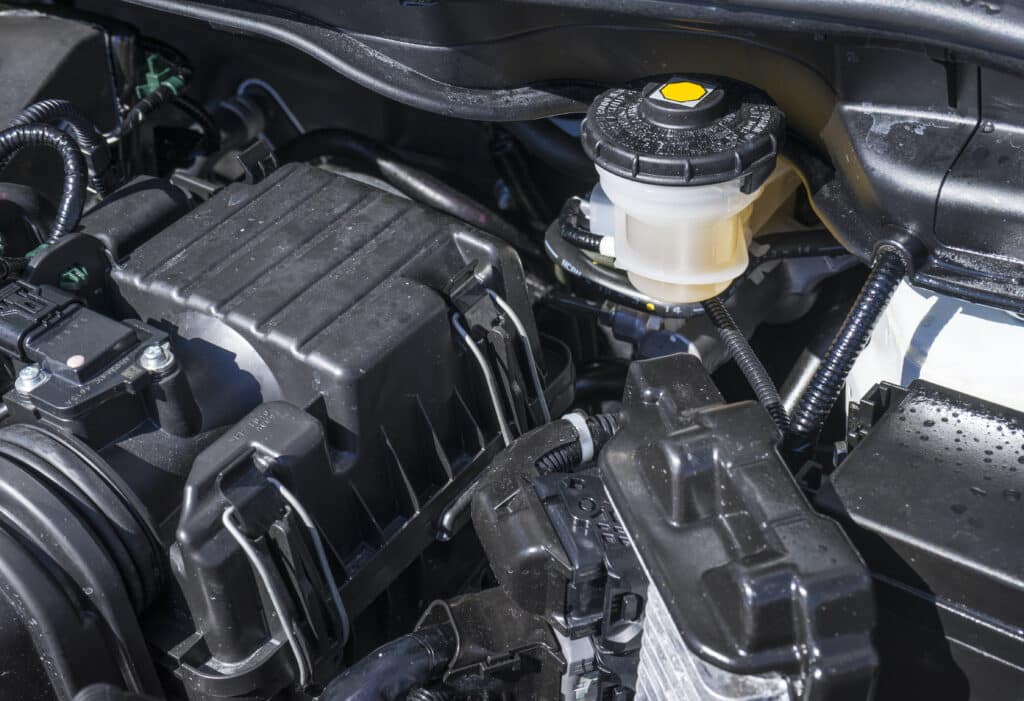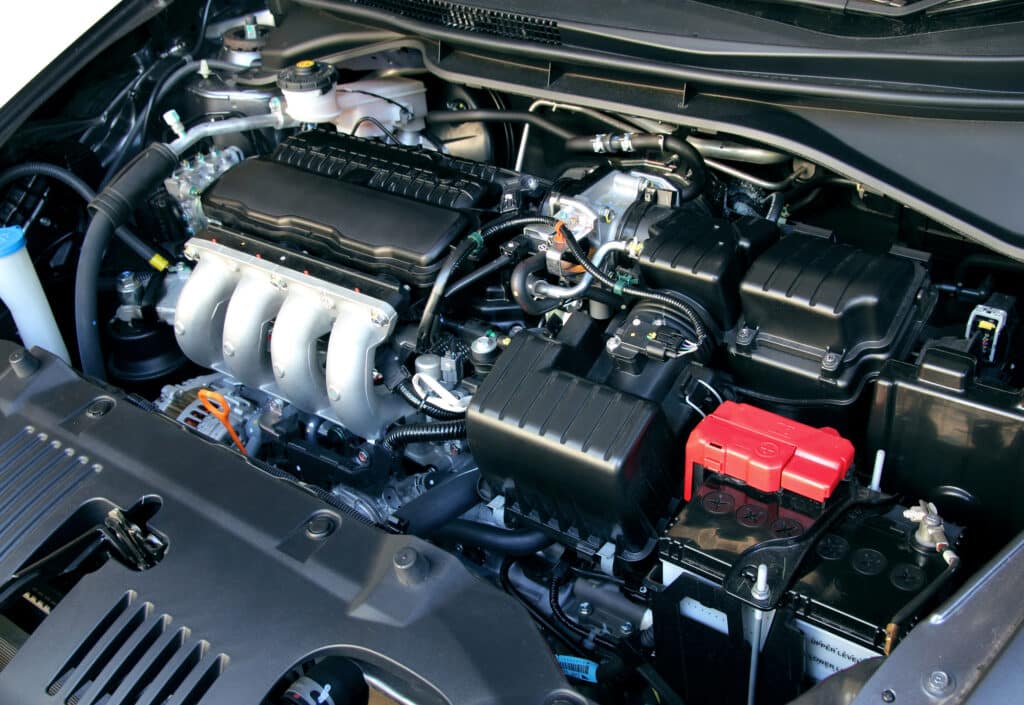The Importance of Brake Fluid and How to Check It
Imagine cruising down the open road, the wind tousling your hair, feeling the freedom that comes with a well-maintained car. Now, imagine the brakes failing to respond as you press the pedal. It’s a terrifying thought, right? While this might seem like a distant possibility for many, a simple component—often overlooked—could be the difference between a smooth stop and a scary skid. Enter brake fluid, the unsung hero of your car’s braking system. In this post, we’ll explore the crucial role brake fluid plays in your vehicle’s safety and how you, as a car owner, can ensure it stays in top condition.
Understanding Brake Fluid and Its Vital Role in Your Vehicle’s Safety
When we think about car maintenance, we often focus on the more visible aspects like the exterior paint, tire tread, and interior cleanliness. However, one of the most crucial components for your safety lies hidden beneath the surface—your brake fluid. At Pyle Automotive, we believe that understanding the function and importance of brake fluid can significantly enhance your vehicle’s performance and your peace of mind.

Auto Brake Fluid Maintenance
What is Brake Fluid?
Brake fluid is a type of hydraulic fluid essential to your vehicle’s braking system. Its primary role is to transfer the force applied when you press down on the brake pedal into pressure, which then amplifies the force to engage the brakes and slow down or stop your car efficiently. This small action triggers a complex system that ensures your safety on the road by allowing for precise control over your vehicle’s braking response.
Types of Brake Fluid
Choosing the right brake fluid is vital, as different types cater to various vehicle specifications. The main categories differ based on their boiling points and chemical compositions:
- DOT 3 – This glycol-based fluid is suitable for most everyday vehicles. It provides reliable performance in regular driving conditions but doesn’t fare as well under high temperatures.
- DOT 4 – Also glycol-based, DOT 4 has a higher boiling point than DOT 3, making it suitable for vehicles that experience frequent stop-and-go traffic or carry heavy loads. It’s generally recommended for modern cars with advanced braking systems.
- DOT 5.1 – Similar to the other two but with a much higher boiling point, DOT 5.1 fluid is often used in performance vehicles. It’s designed to withstand extreme temperatures, which is essential for high-speed or competitive driving.
Why Brake Fluid Matters
The importance of brake fluid cannot be overstated. Its ability to maintain optimal pressure in the braking system is crucial for your safety. A well-maintained braking system using the appropriate brake fluid can prevent brake failure, reduce wear and tear on brake components, and ensure that your vehicle stops precisely when you need it to.
Choosing the Right Brake Fluid
Understanding your car’s specific requirements is key to choosing the right brake fluid. Consult your vehicle’s manual or speak with a professional at Pyle Automotive to determine which type suits your car’s needs. Using the correct fluid not only ensures optimal brake performance but also prolongs the life of your braking system.
The Pyle Automotive Advantage
At Pyle Automotive, our team is committed to keeping you informed and safe on the road. We provide expert advice and top-notch service to ensure your vehicle performs at its best. Whether you’re unsure about which brake fluid to choose or need a complete brake system check, our experienced technicians are here to help.

Car Brake Fluid Maintenance
Why Brake Fluid is Essential for Your Safety
When you’re driving, every component of your vehicle plays a crucial role in ensuring your safety and the safety of those around you. One such silent hero is brake fluid. Often overlooked in routine maintenance, brake fluid is vital to your vehicle’s braking system. Let’s take a deeper dive into why brake fluid is essential for your safety on the road.
- The Role of Brake Fluid: Brake fluid is more than just a component of your vehicle’s braking system—it’s what allows it to function seamlessly. When you press the brake pedal, brake fluid transfers this force into pressure, enabling your brakes to stop your car swiftly and efficiently. This transfer of force reduces stopping distances significantly, which can be crucial in avoiding collisions.
- What Happens When Brake Fluid Fails: Neglecting brake fluid can lead to severe consequences. Over time, it tends to absorb moisture from the air. This moisture can lower the fluid’s boiling point, especially under high temperatures, leading to brake fade. Brake fade is a dangerous condition where the brakes become less responsive, and in some cases, can fail altogether. Such a scenario puts you, your passengers, and others on the road in grave danger.
- Signs of Deteriorating Brake Fluid: It’s important to recognize when your brake fluid needs attention. Signs of deteriorating brake fluid include a spongy brake pedal feel, decreased braking performance, or a warning light on your dashboard. If you notice any of these signs, it’s time to check your brake fluid levels and consider a change.
- Recognizing When Brake Fluid Needs Attention: How do you know when it’s time to give your brake fluid some TLC? Your car often communicates its needs; you just need to know what to listen for. A spongy brake pedal, where it feels softer than usual, is a classic sign. You might also notice the brake warning light flickering on your dashboard. These symptoms suggest the need for an immediate brake fluid check.
Ignoring these signs could lead to dire consequences. Spongy brakes mean longer stopping distances, potentially causing accidents, especially in emergency situations. Addressing these issues promptly can prevent costly repairs and ensure your vehicle remains safe to drive.
How to Check Your Brake Fluid Levels
Checking brake fluid levels isn’t as daunting as it sounds. With a few simple steps, you can keep your brake system functioning smoothly. First, gather the necessary tools—typically a clean cloth and the correct brake fluid type for topping up if needed. Ensure your vehicle is parked on a level surface and turned off to avoid any mishaps.
Locate the brake fluid reservoir, usually a transparent container near the back of the engine bay. Clean the area around the cap to prevent dirt from entering the system. Remove the cap and check the fluid level against the markings on the reservoir. If the level is low, top it up with the recommended brake fluid, ensuring you don’t overfill. Finally, replace the cap securely.
Expert Tips for Maintaining Brake Fluid and Ensuring Vehicle Safety
Proper vehicle maintenance is crucial to ensuring your car runs smoothly and safely on the road. Among the many aspects of car care, maintaining the brake fluid is often overlooked, yet it plays a vital role in your vehicle’s performance. Here at Pyle Automotive, we believe that understanding brake fluid maintenance is key to keeping your vehicle in top condition.
- Make Maintenance a Routine: Maintenance isn’t just a one-time task; it’s a regular routine that keeps your car in optimal health. Aim to check your brake fluid level every few months or during regular service intervals. This proactive approach can help you catch potential issues before they become serious problems. Regular checks not only ensure your safety but also extend the lifespan of your vehicle’s braking system.
- Know Your Brake Fluid Type: Brake fluid comes in different types and grades, and using the wrong one can lead to compatibility issues and reduced brake efficiency. If you’re unsure about the type of brake fluid your vehicle requires, consult your car’s manual. It provides essential information specific to your model. Alternatively, if you prefer a more personalized approach, seek professional advice from a trusted mechanic or car expert. They can guide you to the right choice for your specific vehicle needs.
- Prioritize Quality and Compatibility: Not all brake fluids are created equal, and using an incompatible type can compromise your vehicle’s braking performance. Always use the type specified for your vehicle to maintain brake efficiency and prevent potential damage to your brake system. High-quality brake fluid not only ensures better performance but also reduces the likelihood of corrosion and wear within the brake system.
- Consult with Professionals: When it comes to complex brake system concerns or doubts, seeking expert help is the best course of action. Consulting a professional mechanic ensures that potential issues are addressed with expertise and precision. They have the tools and knowledge necessary to diagnose and fix any problems, ensuring your brakes function optimally and safely.

Brake Fluid Maintenance Service
Conclusion
In the pursuit of a safe and enjoyable driving experience, brake fluid plays an indispensable role. Regular maintenance of brakes not only prolongs the life of your vehicle but also safeguards those who rely on it. By incorporating brake fluid checks into your routine, you’re investing in peace of mind and preventing avoidable accidents on the road.
Ready to take action? Make brake fluid maintenance a priority. Start by checking your vehicle’s current levels and familiarize yourself with its requirements. For those seeking expert guidance, our partners at Pyle Automotive are ready to assist. Remember, a little attention to detail now can save you from major headaches—and expenses—down the line. Drive safe, always.
https://www.google.com/maps?cid=6320892374453977035

